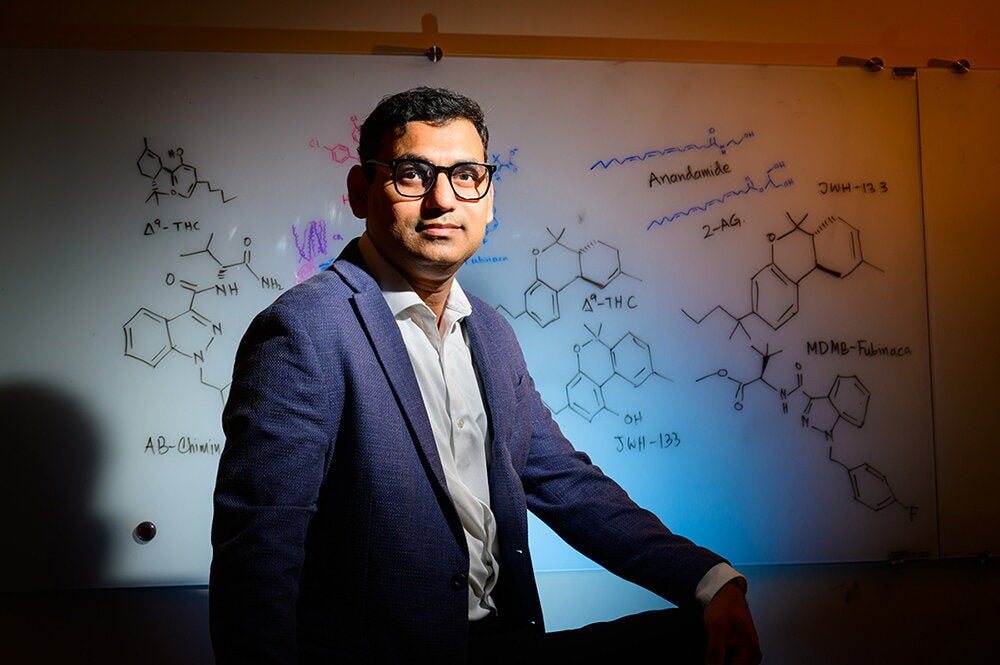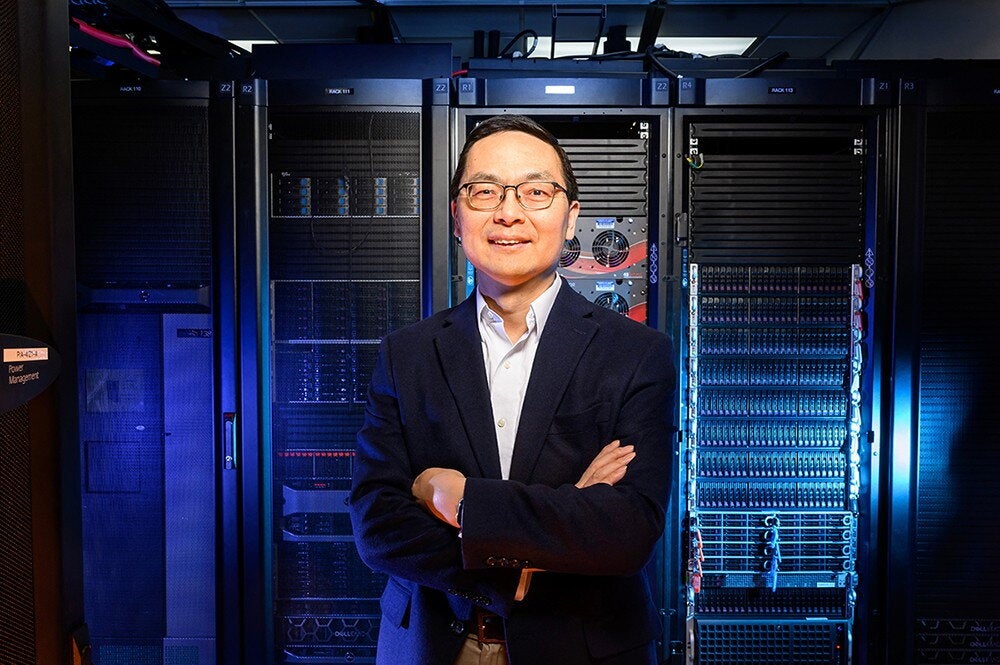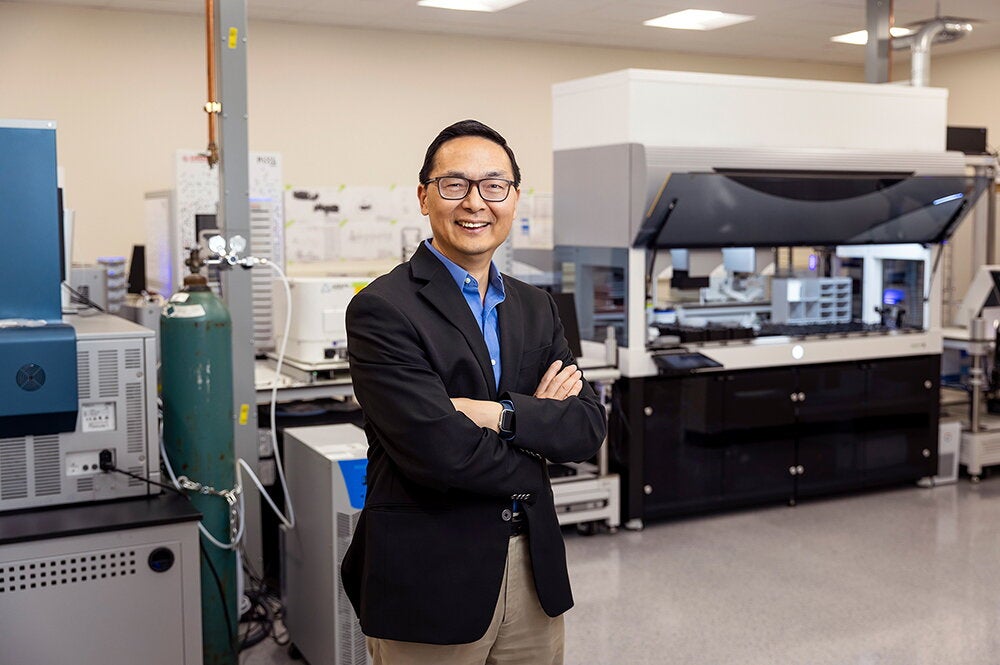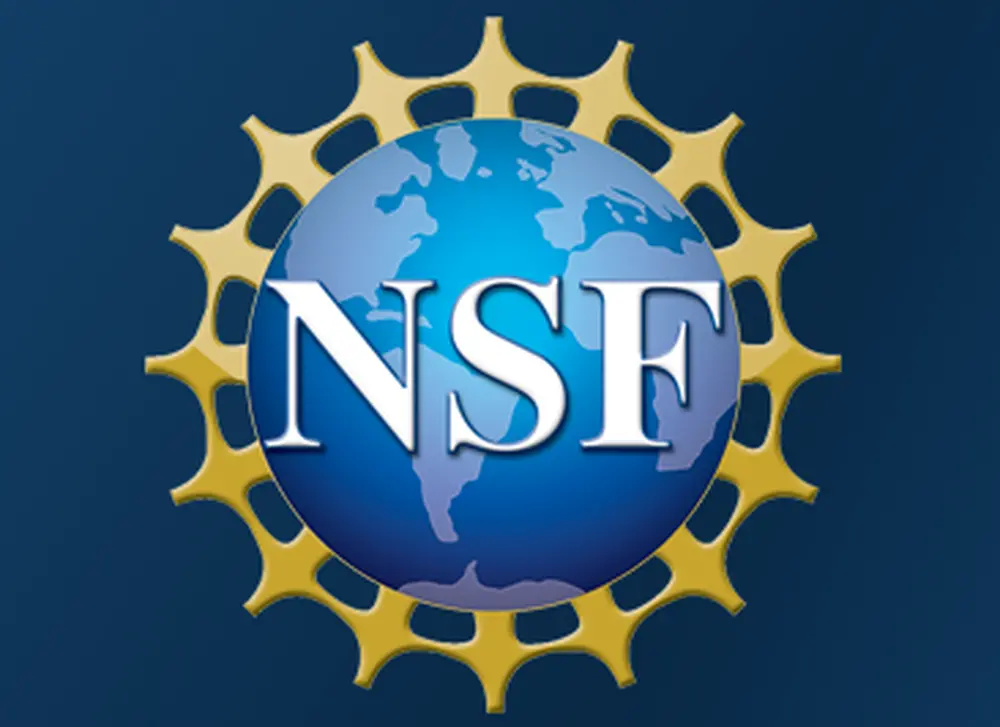
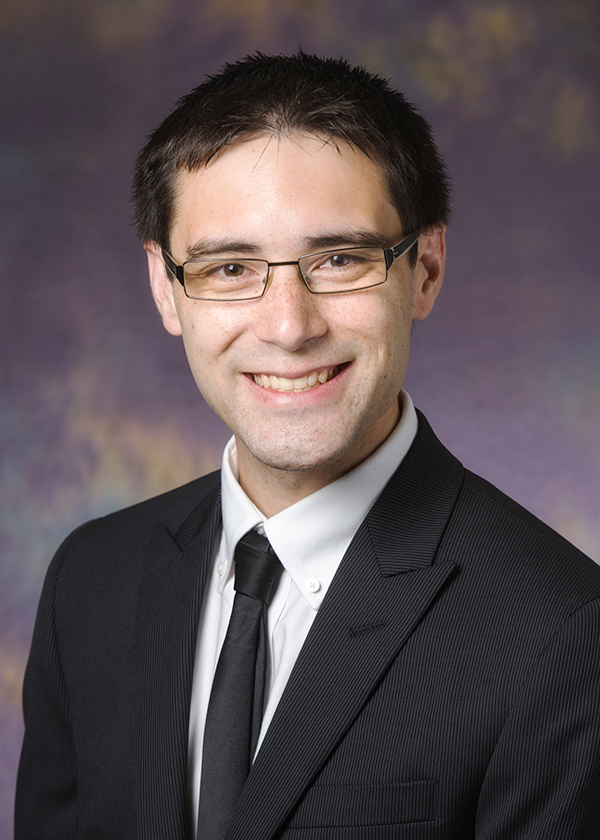
A professor of chemical and biomolecular engineering at Illinois has received a competitive award for exemplary junior faculty from the National Science Foundation (NSF).
Charles Sing will receive five years of support for his work after being selected for a 2017 NSF CAREER Award for his proposal, “Developing the design rules of charge sequence to inform polymer self-assembly.”
The NSF’s Faculty Early Career Development Program’s CAREER Awards are prestigious and competitive awards given to junior faculty who exemplify the role of teacher-scholar through outstanding research, excellent education, and the integration of education and research within the context of the mission of their respective organizations.
“I am incredibly honored by this award. I think it reflects the exciting ideas and hard work of my students, and I am excited to keep working with them to explore this new area of charged, patterned polymers. I hope we can live up to this recognition and push the field forward,” Sing said.
Sing aims to enable advances in materials that demand structural precision at the nano-level, such as fuel cell membranes, functional coatings and sensors, and drug delivery vehicles.
His research is inspired by the sophisticated precision of biological systems made from large molecules that specifically and exclusively interact using information encoded in patterns of electrostatic charge. He will investigate whether polymers—long chain-like molecules made of joined molecular units called monomers—that self-organize can be made to behave in a similar way. He and his research group will determine how patterns of electrostatically charged monomers along a polymer molecular chain can be designed to guide the self-organization of molecular structures at the nanometer length scale.
The NSF CAREER award will also support outreach efforts. Sing and his graduate and undergraduate students volunteer with the St. Elmo Brady STEM Academy, which aims to boost interest in STEM among underrepresented minorities. They teach elementary-age students about issues such as sustainability and the lifecycle of plastics and introduce them to interactive computer simulation activities.
Sing joined the Department of Chemical and Biomolecular Engineering faculty in 2014. He received his BSE/MS from Case Western Reserve University and his PhD from the Massachusetts Institute of Technology. His postdoctoral work was at Northwestern University’s International Institute for Nanotechnology.
